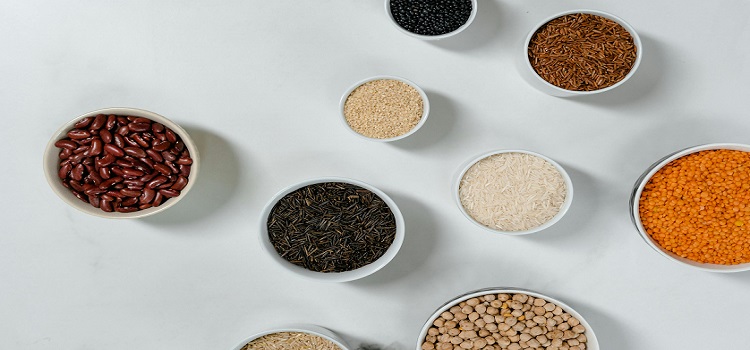As an Amazon Associate I earn from qualifying purchases.
How to Pressure Cook Dry Beans: A Quick and Easy Guide
Pressure cooking dry beans is a time-saving technique that ensures perfectly tender beans without the long soaking and cooking times usually required. Whether you’re preparing beans for soups, stews, or salads, using a pressure cooker can significantly cut down your cooking time. Here’s a comprehensive guide on how to pressure cook dry beans, along with answers to some frequently asked questions.

Ingredients
- 1 cup dry beans (black beans, kidney beans, chickpeas, etc.)
- Water (enough to cover the beans by 2 inches)
- Salt (optional, to taste)
- Aromatics (optional, such as garlic, onion, or bay leaves)
Instructions
- Rinse the Beans:
- Place the dry beans in a colander and rinse them under cold water. Remove any debris or damaged beans.
- Soak the Beans (Optional):
- For best results and to reduce cooking time, soak the beans in water for 4-6 hours or overnight. Drain and rinse before cooking. If you’re short on time, you can skip the soaking step, though it may slightly increase the cooking time.
- Add Beans and Water to the Pressure Cooker:
- Transfer the rinsed beans to the pressure cooker. Add enough water to cover the beans by about 2 inches. You can also add aromatics like garlic or onion for added flavor.
- Seal and Cook:
- Close the lid of the pressure cooker and ensure it is properly sealed. Set the pressure cooker to high pressure and cook according to the type of beans:
- Black Beans: 20-25 minutes
- Kidney Beans: 25-30 minutes
- Chickpeas: 35-40 minutes
- Close the lid of the pressure cooker and ensure it is properly sealed. Set the pressure cooker to high pressure and cook according to the type of beans:
- Release Pressure:
- Once the cooking time is complete, carefully release the pressure according to your pressure cooker’s instructions. You can use the quick-release method or let the pressure release naturally for more tender beans.
- Check for Doneness:
- Open the lid and check if the beans are tender. If not, you can cook them for an additional 5-10 minutes under pressure.
- Season and Serve:
- Season the beans with salt and any additional spices or herbs as desired. Serve them in your favorite recipes or store them for future use.
FAQs
- Do I need to soak beans before pressure cooking?
- Soaking beans is optional but recommended to reduce cooking time and improve texture. If you skip soaking, the beans will take a bit longer to cook.
- How long should I cook beans in a pressure cooker if they were not soaked?
- Unsoaked beans generally require an additional 10-15 minutes of cooking time compared to soaked beans.
- Can I cook beans from frozen in a pressure cooker?
- Yes, you can cook frozen beans. Increase the cooking time by about 10 minutes, and ensure they are evenly distributed in the cooker.
- What should I do if my beans are not fully cooked after the suggested time?
- If beans are not tender, simply close the lid and cook for an additional 5-10 minutes under high pressure. Check again for doneness.
- Can I add seasoning or salt before cooking beans?
- It’s best to add salt and acidic ingredients (like tomatoes) after cooking to avoid toughening the beans. You can add them once the beans are fully cooked.
- How do I store cooked beans?
- Store cooked beans in an airtight container in the refrigerator for up to 5 days or freeze them for up to 3 months.
- Can I use a slow cooker to cook beans instead of a pressure cooker?
- Yes, beans can be cooked in a slow cooker, but it will take longer. Cooking times will vary, but beans typically need 6-8 hours on low or 3-4 hours on high.
- What is the best way to handle bean foam that forms during cooking?
- Foam is a natural part of cooking beans. It usually settles on its own. If it’s excessive, you can skim it off with a spoon before sealing the lid.
- Can I cook beans with other ingredients like meat or vegetables?
- Yes, you can cook beans with meat, vegetables, or other ingredients. Just ensure that the cooking times for all ingredients are compatible.
- Is it safe to cook beans with high levels of lectins in a pressure cooker?
- Pressure cooking is effective in neutralizing lectins, which are present in raw beans. Cooking beans in a pressure cooker ensures they are safe to eat.
Conclusion
Pressure cooking dry beans is a fantastic method for achieving tender, flavorful beans quickly. By following these instructions and addressing common questions, you can streamline your meal prep and enjoy delicious beans with minimal effort. Whether for a hearty soup, salad, or side dish, perfectly cooked beans are just a pressure cooker away!
As an Amazon Associate I earn from qualifying purchases.
Leave a Reply